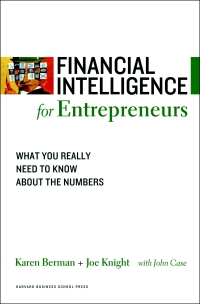Question
The questions bolded, are the questions that need to be answered: If the entry (1) was not corrected, which financial statements (income statement or balance

 The questions bolded, are the questions that need to be answered:
The questions bolded, are the questions that need to be answered:
If the entry (1) was not corrected, which financial statements (income statement or balance sheet) would be affected? What balances would be overstated or understated and why?
If the entry (2) was not corrected, which financial statements (income statement or balance sheet) would be affected? What balances would be overstated or understated and why?
If the entry (3) was not corrected, which financial statements (income statement or balance sheet) would be affected? What balances would be overstated or understated and why?
If the entry (4) was not corrected, which financial statements (income statement or balance sheet) would be affected? What balances would be overstated or understated and why?
Class, Part 6 tends to be one that students need several revisions in order to complete. Here are some tips to assist you.
Product costs (materials, labor, overhead) are not separately reported on the financial statements. Product costs (materials, labor, overhead) are accumulated and reported in the Inventory account on the Balance Sheet until sold. Once sold, those costs are moved to Cost of Goods Sold expense on the Income Statement. During the period end closing process, all Income Statement accounts are zeroed out to Retained Earnings on the Balance Sheet. You need to tell me what accounts reported on the financial statements that are impacted when these product costs are incorrect. Here is a nice explanation for overhead on AccountingCoach.com: https://www.accountingcoach.com/manufacturing-overhead/explanation
Please review the following information regarding the Accounting closing process (hint: look at the Key Takeaways for income statement accounts!): https://www.investopedia.com/terms/c/closing-entry.asp
2., 3., & 4. Both the income statement and balance sheet are affected in this situation. Tell me exactly how and state which accounts are affected and which financial statement they are reported on. For example: "On the balance sheet, account XYZ is understated".
2. OH is a product cost and is not separately reported on the financial statements. What accounts are impacted on the financial statements when product costs are recorded incorrectly (hint: COGS and closing process of temporary accounts on the I/S to the B/S)?
Note: The original intent of the entry is to record Sales Bonus but the Sales Bonus Expense account was not used.
3. Factory wages are OH (i.e. a product cost) and is not separately reported on the financial statements. What accounts are impacted on the financial statements when product costs are recorded incorrectly (hint: COGS and closing process of temporary accounts on the I/S to the B/S)?
When payroll is processed there are 4 accounts used. For factory wages, they are: Wages Expense, Factory Wages Payable, Employer Tax Expense, and Employer Taxes Payable.
4. OH is a product cost and is not separately reported on the financial statements. What accounts are impacted on the financial statements when product costs are recorded incorrectly (hint: COGS and closing process of temporary accounts on the I/S to the B/S)?
Note: Inventory is reported at the aggregate amount of RM, WIP, FG. The errors offset in this entry and do not affect Inventory on the B/S. Assume the units in WIP were sold (i.e. impacting COGS).
In the course of routine checking of all journal entries prior to preparing year-end reports, Betty Eller discovered several strange entries. She recalled that the president's son Joe had come in to help out during an especially busy time and that he had recorded some journal entries. She was relieved that there were only a few of his entries, and even more relieved that he had included rather lengthy explanations. The entries Joe made were: (1) Work in Process Inventory 25,000 Cash 25,000 (This is for materials put into process. I don't find the record that we paid for these, so I'm crediting Cash because I know we'll have to pay for them sooner or later.) (2) ) Manufacturing Overhead 12.000 Cash 12,000 (This is for bonuses paid to salespeople. I know they're part of overhead, and I can't find an account called "Non-Factory Overhead" or "Other Overhead" so I'm putting it in Manufacturing Overhead. I have the check stubs, so I know we paid these.) (3) Wages Expense 120,000 Cash 120,000 (This is for the factory workers' wages. I have a note that employer payroll taxes are $18,000. I still think that's part of wages expense and that we'll have to pay it all in cash sooner or later, so I credited Cash for the wages and the taxes.) (4) Work in Process Inventory 3,000 Raw Materials Inventory 3,000 (This is for the glue used in the factory. I know we used this to make the products, even though we didn't use very much on any one of the products. I got it out of inventory, so I credited an inventory account.)Step by Step Solution
There are 3 Steps involved in it
Step: 1

Get Instant Access to Expert-Tailored Solutions
See step-by-step solutions with expert insights and AI powered tools for academic success
Step: 2

Step: 3

Ace Your Homework with AI
Get the answers you need in no time with our AI-driven, step-by-step assistance
Get Started


